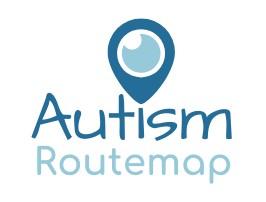Why does my child copy what I say? Part 2

In the last blog post we talked about the fact that autistic children often produce echolalia because they have a different way of learning language. Rather than the usual method of typically developing children - where sounds become single words which lead to phrases and then sentences – autistic children often learn chunks of language which they then reproduce.
As mentioned in the previous post on echolalia, this can be a way of communicating. Your child may be trying to tell you something using the only language they can access.
Are there other explanations for echoing? The simple answer is, “Yes, there are many reasons why children do this.” Having said this, the purpose is not always obvious. So, it’s helpful to watch and learn the patterns that are unique to your child.
Some children echo as a way of experimenting with language. In the same way that typically developing children experiment with babbling noises while they play, your child may be enjoying the sounds of the words he / she is saying. It’s helpful to respond to these words as though they have meaning. So, if your child repeats the phrase, “Hello Duggie” for example, you can respond by using the same phrase but replacing the word “Duggie” with your child’s name. Or, you could pick up two toys and pretend that they are saying “hello” to each other (e.g. “Hello Monkey”, “Hello Teddy”). Change the words to match the context but keep the phrase structure and tone of voice the same. This way, you’re teaching your child to use language that is related to what is going on around them.
Sometimes autistic children adopt phrases which are meaningful to them but not to the people they are communicating with. They may have learned a sentence from a TV programme which they then use, for example, to show discomfort. So instead of saying, “I’m scared” or “I want to go now”, they use a particular phrase. That’s why it’s helpful to watch and learn the patterns of your child over time. You may be able to see that particular phrases pop up in certain situations and they carry specific meaning even if it’s not immediately obvious.
Sometimes, children use echoed sentences as a way of coaching or reminding themselves about what they are doing. So, for example, as they are dressing, they may copy phrases that you’ve used while doing this activity – e.g. “socks on”, “pants on” etc. This can be an effective strategy for helping them to focus on the task at hand.
As you can see, echolalia (whether immediate or delayed) has important functions for your child. It’s helping them to develop their language skills and serves as a way for them to communicate or cope with the situation they find themselves in.
It can be frustrating not knowing what your child is trying to communicate. But take heart. Echolalia tends to decrease as language develops giving children the ability to express themselves more clearly. Of course, each child is different and potential varies according to factors such as, learning ability, severity of autism and the presence of additional difficulties. But try to be patient, learn their patterns and keep in mind, that their words may be very meaningful to them.
To your parenting journey!

